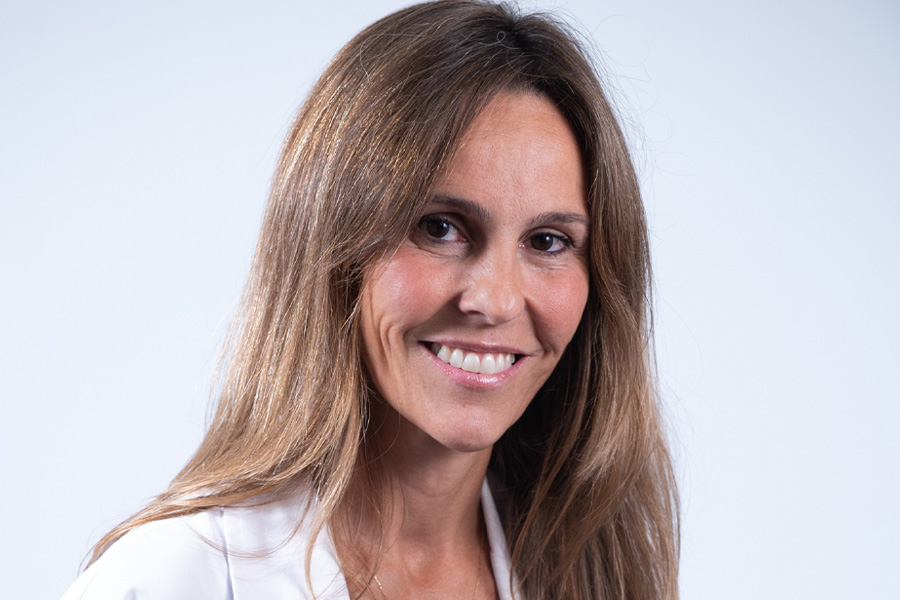This year 2024 has been a one of celebration, consolidation and forward-looking reflection for the Vall d’Hebron Institute of Research (VHIR). I would like to begin by highlighting a major milestone to celebrate, and that is the inauguration of the New Research Building. Spanning over 17,000 sqm and backed by a €43 million investment, this 8-year project stands as a testament to what can be achieved by combining strategic vision, institutional commitment, and collective effort. I would like to take this opportunity to acknowledge all the elements that have been key in this process, including long-term planning and leadership, scientific excellence and credibility, financial support from public and private stakeholders, and strong alignment within the Vall d’Hebron Campus and with the public administration. I truly believe that the New Research Building, officially inaugurated on December the 2nd in a ceremony attended by the President of the Catalan Government, will undoubtedly mark a new era for VHIR, reshaping the way we conduct research and becoming a pole for talent attraction and retention, scientific and technological collaboration, and deployment of cutting-edge equipment and unique infrastructures.
Another major celebration that has most opportunely coincide during 2024 is the 30th anniversary of our institution. In our Annual Scientific Day, we paid tribute to VHIR’s history, with inspiring contributions from distinguished in-house researchers and management teams throughout the past three decades, reaffirming once again our long-standing mission: to improve people’s health through excellent research. The anniversary allowed us to honor all those who have made VHIR possible, while also casting our vision forward.
Finally, we also celebrated the 10th edition of our official Master in Translational Biomedical Research, a program that has trained more than 500 post-graduate students to date. Our commitment to education and the young community remains strong, as demonstrated by the launch of the 1st edition of a new Master in Clinical Trials Management and Coordination and the successful organization of the 2nd PhD Day, both held in 2024.
This year’s performance consolidates VHIR’s position as a leading institution in biomedical research. While the number of publications remains consistently high, with more than 1,500 peer-reviewed papers, high-impact publications have increased: over 30% of publications are in D1 journals (70% in Q1) and 25% are among the top 10% most cited worldwide. Competitive funding has reached a record high, surpassing €29 million, with excellent success rates in both national and international calls, especially those focused on innovation and public-private collaboration. The Vall d’Hebron Campus continues to rank among the top in Europe in terms of clinical trial volume, and in 2024 we expanded our participation in innovative and early-phase clinical trials, providing opportunities to more than 2317 patients across a broad spectrum of medical conditions. Notably, we were awarded the BRIDGE project, which will allow us to pioneer a new model of digitally supported clinical trial monitoring and management, promoting decentralized and equitable access for all patients, especially children and those who are most vulnerable. VHIR’s dedication to innovation and technology transfer remains strong. In 2024, we mobilized more than €13 million euros to either innovation projects or our spin-off & start-up port-folio, which includes now 23 companies after the launch of Nema-Health, a new spin-off focused on cancer treatment.
The scientific output and management model of our center over the last years have undoubtedly contributed to another noteworthy achievement in 2024, which is the re-accreditation by the Instituto de Salud Carlos III as an Instituto de Investigación Sanitaria. This recognition, shared with other institutions on the Vall d’Hebron Campus including the Vall d’Hebron University Hospital, the Universitat Autònoma de Barcelona, Vall d’Hebron Institute of Oncology (VHIO), Institute of Diagnostic Imaging (IDI), and the Blood and Tissue Bank (BST), confirms our strategic value and scientific excellence as the Instituto de Investigación Sanitaria Hospital Vall d’Hebron, one of the most productive in Spain in terms of research, innovation and teaching.
To finish, I would like to highlight once again our core philosophy at VHIR, which is at the heart of all our efforts: to empower our research community do more and better science. In line with this vision, we re-defined the scientific structure of our institution in 2024, establishing 6 research areas and 5 transversal missions or CORES that align major health challenges with our priority fields: Innovative & Advanced Therapies; Transplant & Immunomodulation; AI, Data, Imaging & Digital Health; Environmental & Public Health; Rare Diseases; and Aging. We have committed nearly €3 million in institutional funding to boost research in these areas through intramural competitive programs (such as the new BOOST, RISE and FIT calls) and to expand our institutional HR grants (new collaborative VHIR-IBEC PhD program, new intensification for MDs program). Initiatives to help our researchers continue to grow, including the specialization of our core facilities and the acquisition and deployment of high-technology equipment and infrastructures, elements that the New Research Building is uniquely equipped to host and accelerate. Around these and other key aspects such as talent, internationalization, alliances and efficiency will we be reflecting in 2025 while we conclude the last year of our current Strategic Plan 2021-2025 and begin to shape the future of our organization for the 2026-2030 period.
Many thanks to everyone who is part of the VHIR community and contributes to make us such an outstanding institution.

